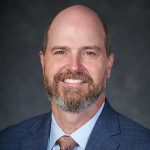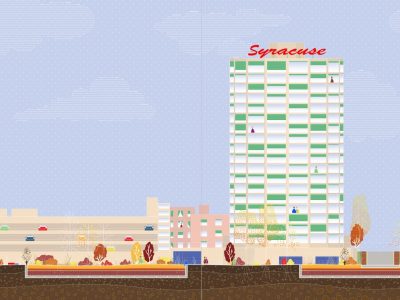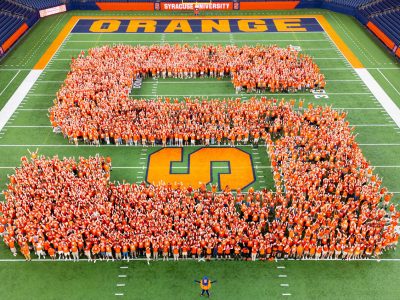9 Projects Awarded MetLife Foundation-Lender Center Racial Wealth Gap Grants
The Lender Center for Social Justice has awarded nine grants for new faculty research projects that study issues contributing to or helping alleviate the racial wealth gap in the United States.
The awards are funded by a 2022 MetLife Foundation grant that supports research and community programming over three years to examine the racial wealth gap’s root causes and ideas that may resolve its economic and social inequalities, says Kendall Phillips, Lender Center interim director. The awards are part of the Lender Center for Social Justice initiative led by the Office of Strategic Initiatives.
The racial wealth gap is an ongoing issue that undermines potential economic and social progress and opportunities for members of underserved and underrepresented communities, according to Kira Reed, Lender Center senior research associate and associate professor in the Whitman School of Management.
“These research projects are noteworthy because of their unique courses of inquiry, their highly inter-disciplinary and inter-institutional nature and their close engagements with Syracuse community members and organizations,” says Phillips.
Projects receiving the one-year grants and involved faculty are:
“Addressing the Racial Wealth Gap Through Increasing Decennial Census Self-Response Rates in Marginalized Communities”
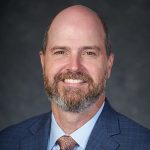
This project will test mechanisms to try to increase self-response rates for the 2030 federal census in undercounted communities in New York State. Successful efforts could offset census undercounts that might otherwise reduce federal funding for education, health care, housing, infrastructure and other vital services.
- Leonard Lopoo, Maxwell School of Citizenship and Public Affairs, principal investigator
- Hannah Patnaik, Maxwell X Lab

“Syracuse Futures”
This study looks at Syracuse’s arts and humanities infrastructure and how universities and community organizations can partner in offering arts and humanities programming and college and career support to historically marginalized communities. Led by the College of Arts and Sciences’ Engaged Humanities Network, the effort involves multiple South Side organizations.
- Brice Nordquist, College of Arts and Sciences, principal investigator.
- Courtney Mauldin, School of Education
- Rochele Royster, College of Visual and Performing Arts
“Does Military Service Mitigate the U.S. Racial Wealth Gap? Overlooked Pathways for Underrepresented Minorities in Public Service”
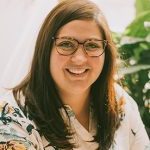

This project explores how military service intersects with racial wealth disparities. Researchers will look at military service as a means of economic advancement and a way to overcome social barriers that may hinder underrepresented minorities who are pursuing post-service career advancement and entrepreneurship.
- Corri Zoli, College of Arts and Sciences, and Arielle Newman, Whitman School, principal investigators
- Linda R. Euto, D’Aniello Institute for Veterans and Military Families (IVMF)
- Charisse L’Pree Corsbie-Massay, Newhouse School of Public Communications
- Robert A. Rubinstein, Maxwell School
- Rosalinda Vasquez Maury, IVMF
- Mauricio Mercado, Lender Center for Social Justice
- Ashley Gomez, University of Pittsburgh
“From Highways to High-Speed Internet: Leveraging Equitable Infrastructure for the Data Economy”
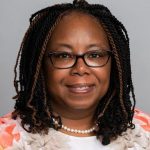
Researchers are determining whether access to first-class digital information, services, assets and increased technology training can reduce the racial wealth gap by lessening barriers to digital networks, critical information and data literacy skills. Skills-training workshops are planned with community members.
- LaVerne Gray and Beth Patin, School of Information Studies (iSchool), principal investigators
- Lee McKnight, iSchool
- Kelvin King, iSchool

Beth Patin - Jasmina Tacheva, iSchool
- Danielle Taana Smith, College of Arts and Sciences/Renée Crown University Honors Program
- El-Java Abdul-Qadir, South Side Innovation Center, Whitman School
“Opportunity Design: Engaging Public Health in Low-Income Communities”

This study leverages interest in ongoing energy retrofit work at 418 Fabius Street in the James Geddes Housing development in Syracuse to generate a more comprehensive examination of social determinants of health through the process of opportunity mapping.
- Hannibal Newsom, School of Architecture, principal investigator
- Seyeon Lee, College of Visual and Performing Arts, co-principal investigator
- Eliana Abu-Hamdi, School of Architecture, co-investigator
“Nourishing Families: Parents as Partners in the Alignment of a Mindful Eating Intervention to Meet the Needs of Low-Income and Marginalized Families With Young Children”

Parent and teacher workshops that include mindful yoga and mindful eating lessons for children are planned to address the nutrition needs of low-income, underrepresented families in Syracuse. Research will explore if better nutrition for vulnerable populations can mean better health for families and more opportunities for their gainful employment, lessening the racial wealth gap.
- Lynn Brann, Falk College of Sport and Human Dynamics, principal investigator
- Rachel Razza, Falk College
- Xiafei Wang, Falk College
“Addressing Obesity and Hypertension in Refugees through Culturally Relevant Meal Interventions”

This project looks at obesity and hypertension in diaspora populations and works with African immigrants on post-immigration diets to introduce healthy adaptations while preserving culinary heritage. The goal is to assess whether healthier eating can reduce health issues and boost labor force participation, generating improved socioeconomic status.
- Miriam Mutambudzi, Falk College, principal investigator
- Naomi Shanguhyia, Falk College
“Disability as a Critical Element in Exploring the Racial Wealth Gap”
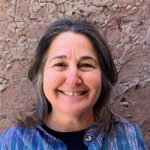
Researchers will identify challenges faced by Black, Indigenous and People of Color individuals with disabilities and will examine the role of disability in the racial wealth gap. They plan to develop recommendations regarding policies and practices that limit economic inclusion and trap people with disabilities into poverty.
- Nannette Goodman, College of Law, principal investigator
- Peter Blanck, College of Law
“Optimizing Corporate Supplier Diversity Programs and Corporate-Facing Regulations for Addressing the Racial Wealth Gap”

This initiative examines diversity interactions and legislative interventions in business-to-business aspects of wealth distribution and corporate supplier diversity programs. Researchers will develop guidance on diversity programs and diversity initiatives while enhancing those programs’ potential to level the racial wealth gap.
- Karca Aral, Whitman School, faculty lead
- Erasmo Giambona, Whitman School
- Ricardo Lopez A., Whitman School
